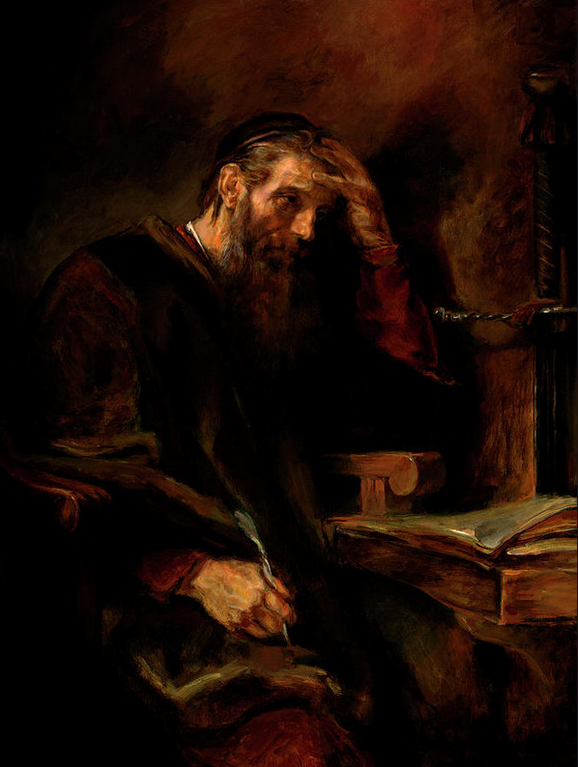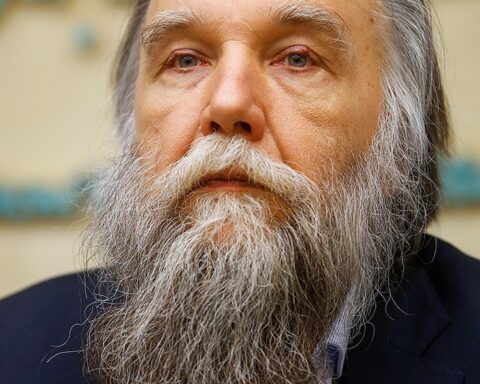
Editor’s note: The following is extracted from University Sermons, by Hugh Black (published 1908).
A certain people . . . and their laws are diverse from all people.
Esther iii. 8.
In this story of the Persian Empire it is related how Haman, the king’s chief favourite, felt insulted because Mordecai the Jew neglected to give him sufficient honour. His wounded dignity demanded revenge, but could not be satisfied with merely inflicting punishment on the man who had offended him. To offend the second man in the Empire needed a wider punishment than that. Because Mordecai was a Jew he would have the indignity wiped out by the extermination of the whole tribe. So Haman, by a little judicious flattery of the king, and by misrepresenting the character of the Jewish exiles who lived within the bounds of the great Persian Empire, got a decree against them. The charge that he brought against them was of course not the personal one of injured dignity, but that they were a peculiar people, who had laws of their own other than the laws of the Empire, that therefore they were a source of danger to the kingdom, and it was in the king’s interest and in the interests of peace to get rid of them. ‘There is a certain people dispersed among the provinces of thy kingdom, and their laws are diverse from those of every people.‘ It was a false charge, as Haman made it, implying a Jewish conspiracy against the empire. It was meant to prejudice the king against them, as if they were seditious and practically rebels. But in another sense it was true. It is often the true word that comes from the mouth of the enemy, in another sense than that in which he uses it. Haman’s accusation was true. The Jews were a separate people even in the midst of the Persian Empire, with rites, and ceremonies, and religious beliefs, and practices of their own. They were apart from all others, peculiar, unique among all the provinces of Persia, with separate faith, with strange ways, with laws diverse from those of every people.
The same sort of charge was made against the Christian faith in the Roman Empire, with the same falseness and evil purpose, and with the same inherent truth. Christians were persecuted and harried because of their singularity, because they were in Rome and yet did not do as the Romans did. They were charged with sedition and rebellion; and their singularity gave point to the accusation. Many a Haman vented his personal spite by similar charges. The process began early with the Christians. At Philippi, when the masters of a maid that Paul had cured saw that the hope of their gain was gone, they laid hold of Paul and Silas and dragged them into the market-place before the rulers; and when they had brought them unto the magistrates they said, ‘These men, being Jews, do exceedingly trouble our city, and set forth customs, which it is not lawful for us to receive, or to observe, being Romans.’ At Thessalonica they were again brought before the rulers with the charge, ‘These all do contrary to the decrees of Caesar, saying that there is another King, one Jesus.‘ It was true that these Christians were turning the world upside down. In a deeper sense than their accusers knew, or meant, the charge was true that they were singular, and stood apart from all others, a world within the world of Rome, and had laws diverse from those of all other people.
Progress is ever got by dissent. There must be points of departure, lines of cleavage, difference; or else there is stagnation and ultimate death. The law is universal in the development of life; and it is true in the higher reaches of the spiritual in man. It is from singularity that the race has hope for the future. Great movements of thought have ever sprung from dissent. Men might go on till doomsday, repeating the old and the usual, but at the best that is only marking time, not progressing. Our Christian religion lays greater stress than ever on the solitariness of principle, making it even an individual thing instead of a racial difference, as with the Jews. The Church is set in the world as a model for the world, a great object-lesson to induce it upward to a higher level of thought and action. And what is the Church but a certain people whose laws are diverse from those of all other peoples. That at least is the standard and ideal for the Church. But the Christian faith, with its doctrine of the special illumination of the Holy Spirit to the receptive soul, goes even further, and puts the emphasis on the individual, making the soul responsible to God alone. It enforces the imperative of principle, calling a man out, if need be, to stand alone, making him, it may be, diverse from all people for conscience’ sake. Faith has ever a protest, tacit often, but none the less real.
A great soul is alone. From the very nature of the case greatness in anything isolates. The more exceptional you become, the smaller becomes the circle of true relationship. Socially this is so, in its own petty way. In a society which is rigidly ruled by impassable social laws, the higher up you go, the more rarefied the atmosphere becomes, the more select the members of the society are and therefore the more isolated. Intellectually the same fact is seen. The larger the brain, the fewer the mental peers. A great scholar can have scholarly intercourse only with a limited number. Even morally and spiritually there is a very real sense in which this fact is true. The higher a man’s ideal, the fewer are the hearts that can share it. The mass of men have little sympathy with the transcendental thinker. Behold this dreamer cometh — and they put him in a pit. Only with a man’s peers can he have full communion. The crowd is repelled by too great earnestness and zeal. Have you never felt uncomfortable in the presence of an ardent reformer, a zealot for something you were lukewarm about? You vowed you would give him the cold shoulder next time he tried to button-hole you. This may not necessarily mean blame to you, for he may have been only a faddist or a busybody. But still it illustrates the fact. Kinship of soul is necessary for communion. I dare say there were many who thought Paul a faddist; certainly he repelled people as well as attracted. Few ever had such bitter enemies — well-meaning men some of them, who thought him dangerous. The laws of his life were too diverse for them. It is a commonplace of criticism that the great men are often neglected while they live, and only discovered when they are dead. The prophet runs the risk of having no honour in his own country and time. A great man is always, to begin with, in a minority. Commonplace men on the whole prefer the commonplace. Jeremiah, the most spiritually-minded man of his day, had to stand alone. He was a tender soul, capable of the truest personal love, and yet felt that he was a man of strife and contention to the whole land. A man who faces a great enterprise must be prepared for defections even among his closest friends. The larger the claims made on them, the smaller becomes the response. The longer the race and the harder the pace, the fewer stay out to the goal. Now here, now there, a Demas forsakes Paul. He is no longer in full sympathy with him, or finds the demands on his friendship too many — at any rate, he goes to his own place.
We think of Christ’s words, with their keen insight into the deeps of human nature, ‘Behold the hour cometh, yea, is come, that ye shall be scattered, every man to his own, and shall leave Me alone.‘ Even before the scattering He was isolated, because He was unique. In a sense He was alone all His life. Typical of His whole ministry is that striking scene when He set His face to go to Jerusalem for the last time. The disciples were awed by the very look on His face, and drew back to discuss together their petty questions about precedence in the kingdom, while the Master walked on alone. He had thoughts they could not enter into, feelings they were strangers to, desires such as they never dreamed of; there were things they might know hereafter, but could not know then. ‘They understood not His sayings,’ is a note that can be often made regarding His intercourse with them. Christ’s elevation of soul and purity of heart meant solitude. He was alone in a sense, and a degree, in which neither Paul nor any other man could be alone, though Paul also in his degree had to pay the penalty of greatness. The servant could not escape where the Master suffered. It is the law of solitariness of principle.
So, for the making of a great character, there must be a certain contempt for criticism. A man must be willing to be diverse in his standards of judgment and in his way of living. He must dare to be singularly good. ‘With me,’ says St. Paul, ‘it is a very small thing that I should be judged of you, or of man’s judgment.’ A man must rate current opinion at its right value, and must never lay too much stress on popular favour and praise. Milton expresses this contrast in his own great way : —
They extol
Things vulgar, and, well weighed, scarce worth the praise.
They praise and they admire they know not what,
And know not whom, but as one leads the other.
And what delight to be by such extolled,
To live upon their tongues, and be their talk,
Of whom to be dispraised were no small praise?
His lot who dares be singularly good.
But this singularity must be the fruit of principle to be worth anything; it must be for conscience’ sake. The diverseness from all other people must be in obedience to laws, which make their irresistible appeal to conscience. If it is due to desire for notoriety, or through eccentricity, it is beneath contempt. A good deal of dissent from accepted positions has an unworthy source, sometimes due to mere temper and stupid self-will, or to conceit and love of being singular. It is a cheap way to notoriety for a thick-skinned man by protesting, and dissenting, and riding rough-shod over established custom. But the cure for such is simple. This weak craving for notice will be curbed by the thought that all singularity carries with it a corresponding responsibility. It tunes the life to a high pitch; and failure is all the more pitiful. It demands stern adherence to principle. It fixes a more inflexible standard. Dr. Johnson, writing of Dean Swift in the Lives of the Poets, says : ‘Singularity, as it implies a contempt of general practice, is a kind of defiance which justly provokes the hostility of ridicule; he, therefore, who indulges peculiar habits is worse than others, if he be not better.’ This is a true principle of judgment in all matters of dissent from established opinion and custom. It is a principle which our Lord applied to His followers. He made demands on them larger and higher than the world asked. ‘What do ye more than others?’ He asked. If you are diverse from others, if you are set apart from them, and yet obey not a grander law, what do ye more than others? The only excuse for laws diverse from all people is that they should be higher laws, and be obeyed with whole-hearted loyalty. And the very moral necessity laid upon a man’s conscience to be singular, the unflinching advocacy of an unpopular cause for conscience’ sake, gives to the character strength and solidity. Such a man, called to live a life of protest, serves his generation better than the whole unthinking crowd who are swept along by the mere momentum of numbers. He may make mistakes, and lay the emphasis wrongly on accidental details sometimes; but better that than dull uniformity, where every coat is cut to the same pattern, every opinion and idea is rounded off, and smoothed down, and hall-marked. The conventional has always its swarm of adherents; the original has to fight for even a foothold.
In the last issue a man is not absolved from complicity in evil because he has followed a multitude. He is called to be loyal to the truth as he knows it, as conscience directs, however diverse it seems to make his way from the common path. However many are the temptations on the one hand to crankiness, and eccentricity, and conceit, far more deadly are the temptations on the other side, to weakness, and cowardice, and pliable principles, and the stifling of conscience. Young men are sometimes charged with forwardness, and too great desire to be singular, and to take up a position different from the conventional. That may be so with a few; but with most the very opposite is the charge that could be substantiated, of moral cowardice, of weakness in following their own instincts. They are too easily cowed into giving up their principles, too easily moved by a sneer, too easily brow-beaten by a majority. If in the presence of temptation they stood to their guns, there would be more moral victories, and a finer type of manhood developed amongst us. If we were less afraid of singularity for conscience’ sake, if we lived to God and not to our fellow-men, there would be less marking time and more marching in the battlefield of life.
Be true to your best self; be true to principle; be true to God. Let the world stand where it will, stand you on the side of whatsoever things are pure, honourable, just, lovely, of good report. Be not ashamed of the Gospel of Christ, which is the power of God unto salvation. Work not with eye-service as men-pleasers, but as servants of Christ, doing the will of God from the heart. When sinners entice, consent ye not. Give Christ His place in the midst, the throne of the heart, the judgment-seat of the Church; and the charge spoken in blame will be an eternal glory, ‘a certain people whose laws are diverse from all people.’









3.5